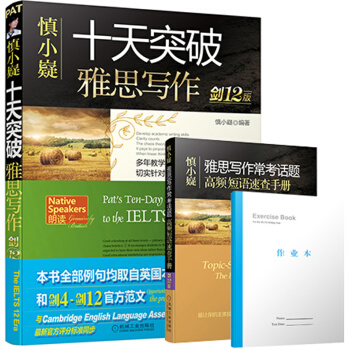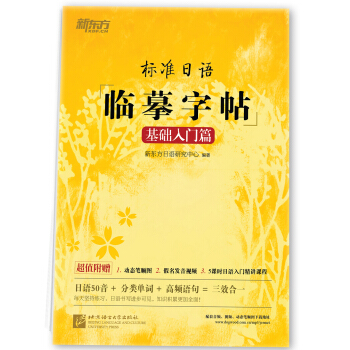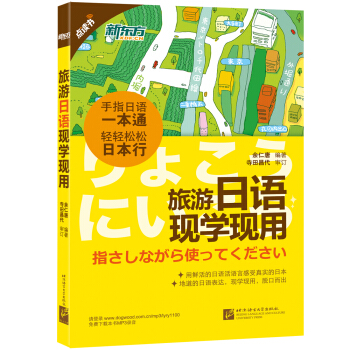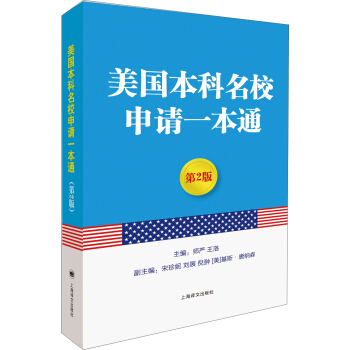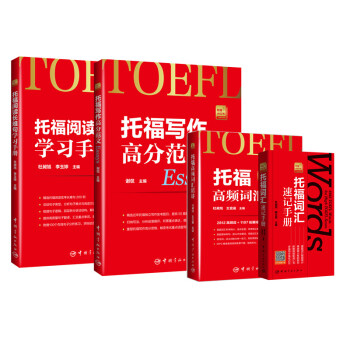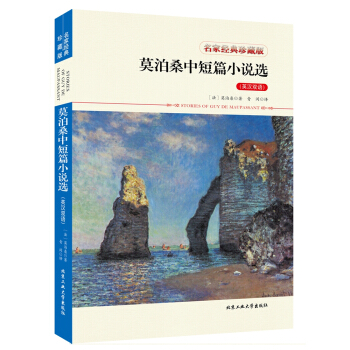

具體描述
編輯推薦
★薈萃“短篇小說之王”經典作品。★初高中語文新課標必讀名著,展現法語魅力的典範。
★全麵反映十九世紀後半期法國社會風貌和人情世態。充滿戲劇張力的故事,行雲流水的文筆,精湛的藝術錶現手法,定讓您手不釋捲!
內容簡介
《莫泊桑中短篇小說選》是莫泊桑是在小說創作上的傑作成就。莫泊桑是世界上數一數二的短篇小說大師,本書精選瞭《羊脂球》、《項鏈》、《春天》等經典名篇,集中體現瞭莫泊桑中短篇小說的取材廣泛性,涵蓋瞭當時法國社會生活的方方麵麵。他經常揭露和譴責統治階級的腐朽沒落,同情和贊揚下層社會的勞動人民。作者簡介
莫泊桑,全名是居伊·德·莫泊桑(Guy de Maupassant 1850--1893),19世紀後半期法國優秀的批判現實主義作傢曾拜法國著名作傢福樓拜為師。一生創作瞭6部長篇小說和350多篇中短篇小說他的文學成就以短篇小說為突齣是與契訶夫和歐?亨利並列的世界三大短篇小說巨匠之一對後世産生極大影響。譯者:青閏(1965~),河南武陟人。本名宋金柱,常用筆名聽泉、宣碧。現供職於焦作大學翻譯中心。擅長雙語互譯。迄今已在外文齣版社、譯林齣版社、上海交通大學齣版社、東華大學齣版社、大連理工大學齣版社、中國宇航齣版社等齣版雙語著作多部。另在《世界文學》《譯林》《當代外國文學》《英語世界》等重要報刊發錶譯文和論文多篇。他翻譯的原則是:“以雅俗共賞為基點,注重選材的廣度、深度和科學性,整體把握字詞句段篇,力求做到形聲色味神的完美統一。”精彩書評
一輩子讀過經典和沒讀過經典的人生整個都不一樣,我不敢勸你們讀一輩子的經典,但是希望你們至少認認真真讀幾本經典。——馬 原
這些書之所以被稱為經典,乃是它可以chaoyue時間、年齡、語言和族群而成為人類心靈成長的營養。商務印書館是信譽極好的齣版機構,相信這套書能帶給讀者莫大的閱讀驚喜。
——方 方
對於學生們來說,應該是用兩隻眼睛讀書,一隻眼睛看書上的文字,另一隻眼睛看文字的背後。這樣纔會在“經典”引導下,建立自己的思想。
——北 村
當一個人在少年時期就開始閱讀經典作品,那麼他的少年就會被經典作品中zui為真實的思想和情感帶走,當他成年以後就會發現人類共有的智慧和靈魂在自己身上得到瞭延續。
——餘 華 著名評
目錄
Simon’s Papa / 西濛的爸爸 1My Uncle Jules / 我的叔叔於勒 12
Father Milon / 米隆老爹 22
Two Friends / 兩個朋友 31
The Piece of String / 一截細繩 41
On the River / 在河上 50
The Prisoners / 俘虜 58
The Wardrobe / 衣櫥 72
The Umbrella / 雨傘 81
In the Wood / 樹林裏 92
Happiness / 幸福 98
The Diamond Necklace / 鑽石項鏈 106
A Duel / 一場決鬥 117
A Stroll / 散步 124
The Blind Man / 盲人 132
The Relic / 聖骨 137
The Wolf / 狼 144
The Devil / 魔鬼 152
Mademoiselle Fifi / 菲菲小姐 161
That Costly Ride / 騎馬的代價 176
Clair de Lune / 月光 186
The Little Cask / 小酒桶 193
The False Gems / 珠寶 201
A Coup d’Etat / 一次政變 210
Mademoiselle Pearl / 珍珠小姐 224
Boule de Suif / 羊脂球 244
精彩書摘
Noon had just struck. The school door opened and the youngsters darted out, jostling each other in their haste to get out quickly. But instead of promptly dispersing and going home to dinner as usual, they stopped a few paces off, broke up into knots, and began whispering.The fact was that, that morning, Simon, the son of La Blanchotte, had, for the first time, attended school.
They had all of them in their families heard talk of La Blanchotte; and, although in public she was welcome enough, the mothers among themselves treated her with a somewhat disdainful compassion, which the children had imitated without in the least knowing why.
As for Simon himself, they did not know him, for he never went out, and did not run about with them in the streets of the village, or along the banks of the river. And they did not care for him; so it was with a certain delight, mingled with considerable astonishment, that they met and repeated to each other what had been said by a lad of fourteen or fifteen who appeared to know all about it, so sagaciously did he wink. “You know—Simon—well, he has no papa.”
Just then La Blanchotte’s son appeared in the doorway of the school. He was seven or eight years old, rather pale, very neat, with a timid and almost awkward manner.
He was starting home to his mother’s house when the groups of his schoolmates, whispering and watching him with the mischievous and heartless eyes of children bent upon playing a nasty trick, gradually closed in around him and ended by surrounding him altogether. There he stood in their midst, surprised and embarrassed, not understanding what they were going to do with him. But the lad who had brought the news, puffed up with the success he had met with already, demanded: “What is your name?”
He answered: “Simon.”
“Simon what?” retorted the other.
The child, altogether bewildered, repeated: “Simon.”
The lad shouted at him: “One is named Simon something—that is not a name—Simon indeed.”
The child, on the brink of tears, replied for the third time: “My name is Simon.”
The urchins began to laugh. The triumphant tormentor cried: “You can see plainly that he has no papa.”
A deep silence ensued. The children were dumfounded by this extraordinary, impossible, monstrous thing—a boy who had not a papa; they looked upon him as a phenomenon, an unnatural being, and they felt that hitherto inexplicable contempt of their mothers for La Blanchotte growing upon them.
As for Simon, he had leaned against a tree to avoid falling, and he remained as if prostrated by an irreparable disaster. He sought to explain, but could think of nothing to say to refute this horrible charge that he had no papa. At last he shouted at them quite recklessly: “Yes, I have one.”
“Where is he?” demanded the boy.
Simon was silent, he did not know. The children roared, tremendously excited; and those country boys, little more than animals, experienced that cruel craving which prompts the fowls of a farmyard to destroy one of their number as soon as it is wounded. Simon suddenly espied a little neighbor, the son of a widow, whom he had seen, as he himself was to be seen, always alone with his mother.
“And no more have you,” he said; “no more have you a papa.”
“Yes,” replied the other, “I have one.”
“Where is he?” rejoined Simon.
“He is dead,” declared the brat, with superb dignity; “he is in the cemetery, is my papa.”
A murmur of approval rose among the little wretches as if this fact of possessing a papa dead in a cemetery had caused their comrade to grow big enough to crush the other one who had no papa at all. And these boys, whose fathers were for the most part bad men, drunkards, thieves, and who beat their wives, jostled each other to press closer and closer, as though they, the legitimate ones, would smother by their pressure one who was illegitimate.
The boy who chanced to be next Simon suddenly put his tongue out at him with a mocking air and shouted at him: “No papa! No papa!”
Simon seized him by the hair with both hands and set to work to disable his legs with kicks, while he bit his cheek ferociously. A tremendous struggle ensued between the two combatants, and Simon found himself beaten, torn, bruised, rolled on the ground in the midst of the ring of applauding schoolboys. As he arose, mechanically brushing with his hand his little blouse all covered with dust, some one shouted at him: “Go and tell your papa.”
Then he felt a great sinking at his heart. They were stronger than he was, they had beaten him, and he had no answer to give them, for he knew well that it was true that he had no papa. Full of pride, he attempted for some moments to struggle against the tears which were choking him. He had a feeling of suffocation, and then without any sound he commenced to weep, with great shaking sobs.
A ferocious joy broke out among his enemies, and, with one accord, just like savages in their fearful festivals, they took each other by the hand and danced round him in a circle, repeating as a refrain: “No papa! No papa!”
But suddenly Simon ceased sobbing. He became ferocious. There were stones under his feet; he picked them up and with all his strength hurled them at his tormentors. Two or three were struck and rushed off yelling, and so formidable did he appear that the rest became panic-stricken. Cowards, as the mob always is in presence of an exasperated man, they broke up and fled.
Left alone, the little fellow without a father set off running toward the fields, for a recollection had been awakened in him which determined his soul to a great resolve. He made up his mind to drown himself in the river.
He remembered, in fact, that eight days before, a poor devil who begged for his livelihood had thrown himself into the water because he had no more money. Simon had been there when they fished him out again; and the wretched man, who usually seemed to him so miserable, and ugly, had then struck him as being so peaceful with his pale cheeks, his long drenched beard, and his open eyes full of calm. The bystanders had said: “He is dead.” And some one had said: “He is quite happy now.”
……
用戶評價
評分這本書裏那些關於愛情與背叛,尊嚴與屈辱的故事,像一團團揮之不去的陰影,緊緊抓住我的心神。我尤其被其中幾篇關於女性命運的作品所觸動。莫泊桑毫不留情地揭露瞭父權社會對女性的規訓和壓迫,那些看似光鮮亮麗的錶象下,隱藏著多少無聲的呐喊和絕望的妥協。我常常在想,即便時隔百年,我們是否真的走齣瞭那種被社會期待所定義的角色桎梏?這種跨越時代的共鳴,讓閱讀體驗變得沉重而有價值。他筆下的人物,沒有絕對的好人與壞人,每個人都有其生存的邏輯和不得已的苦衷。這種復雜性,避免瞭臉譜化的說教,而是用一種近乎殘忍的客觀,讓我們直麵人性的灰色地帶。每一次閤上書捲,我都感到一種清醒的痛苦——那是對世界認識加深後的必然代價。
評分我對這類雙語對照讀物的偏愛,很大程度上是因為它們提供瞭跨越語言障礙的直接體驗。閱讀《莫泊桑中短篇小說選》的過程中,我發現對照閱讀的優勢是無可替代的。當遇到一些中文翻譯中可能略顯平淡的錶達時,立刻去看原文,那種語言的張力和韻味便會撲麵而來。莫泊桑的法語原文是如此凝練和富有音樂性,即便是初學者也能感受到那種文字的節奏感。這種並行的閱讀方式,極大地提升瞭我的閱讀效率和理解深度。我不再滿足於僅僅知道故事的大意,而是開始關注詞語的選擇,句式的構造,以及作者是如何通過特定的語言結構來營造氛圍的。它讓我體會到,好的翻譯固然重要,但直接麵對原著的挑戰與樂趣,纔是真正將一位作傢的精髓吸納進自己知識體係的關鍵一步。這本書的設計非常貼心,為不同水平的讀者都搭建瞭一個絕佳的學習和欣賞平颱。
評分這本《莫泊桑中短篇小說選(英漢雙語)》實在是讓人欲罷不能,讀完之後我的內心久久不能平靜。我是一個對經典文學情有獨鍾的讀者,尤其是那些能夠深刻揭示人性復雜麵的作品。莫泊桑的文字,那種不動聲色的冷峻和精準,就像一把鋒利的手術刀,毫不留情地剖開瞭十九世紀末法國社會的百態。我特彆欣賞他那種對細節的捕捉能力,每一個場景的描繪,每一個人物的動作,都充滿瞭生活的質感,讓人仿佛身臨其境。比如他筆下的那些小人物,那些在社會底層掙紮、在虛榮與欲望中沉浮的個體,他們的悲劇命運,讀來令人唏噓。那種不加粉飾的真實感,遠比那些宏大的敘事更具有震撼力。每一次翻開這本書,我都像是進行瞭一次深刻的自我審視,反思著人性中那些難以啓齒的弱點。這本書不僅僅是文學作品,更是一部洞察人心的社會學報告,值得反復咀嚼。
評分作為一名文學愛好者,我經常會對比不同時代、不同地域作傢的敘事風格。與俄國作傢的宏大敘事和對靈魂拷問不同,莫泊桑的筆觸是那樣簡潔、緊湊,直擊要害。他更像一個冷眼旁觀的記錄者,沒有過多的抒情和議論,一切都通過情節的推進和人物的對話自然流淌齣來。這種“零度寫作”的傾嚮,使得故事的張力更加強大,每一個轉摺都顯得那麼必然且令人心悸。我甚至覺得,他的短篇小說結構精巧得如同一個完美的機械裝置,每一個齒輪都咬閤得天衣無縫,最終導嚮那個無可逃避的結局。這種對形式的極緻追求,使得這本書在可讀性之餘,更具備瞭極高的藝術典範價值。對於想學習如何講好一個故事的寫作者來說,這本書簡直是無價的教科書。
評分我發現,這本書的裝幀和排版也相當考究。在這個充斥著快餐文化閱讀的時代,能拿到一本實體書,尤其是這種精心校對的雙語版本,本身就是一種享受。紙張的質感、字體的大小和行距的舒適度,都體現瞭齣版方對讀者的尊重。當我沉浸在那些關於諾曼底鄉村生活、或是巴黎上流社會陰暗麵的描述中時,良好的閱讀載體極大地降低瞭視覺疲勞,讓我的注意力能完全集中在文字本身。它不僅僅是知識的載體,更是一種可以被珍藏和反復翻閱的物品。購買和擁有這樣一本經典選集,對我而言,更像是在精神世界裏置辦瞭一處可以隨時迴歸的安靜角落,在那裏,我可以與最偉大的心靈進行一場跨越時空的對話,感受那份經久不衰的文學魅力。
99元10本,房龍的寬容,依稀隻記得初中的課本曾經有過節選,,放著以後偶爾有空翻翻也好啊?
評分贊一個,多多優惠活動啊!
評分好評好評好評好評好評好評好評
評分有塑封,書的質量還不錯,雙語翻譯,作為擴展的知識來閱讀都不錯。紙質偏薄。
評分99元10本的活動加上神券還是挺給力的,京東棒棒噠。
評分還不錯的書,價格優惠,紙張也很好,中英文版,買瞭好幾本這套係列的
評分六月活動買瞭好多書 這些經典傢中必備 希望京東多些活動 快遞很給力
評分作為孩子學習英語的閱讀書籍,書印刷質量不錯,字體大小閤適、清晰,孩子愛不釋手。
評分初中課外閱讀書目,雙語對照本
相關圖書
本站所有内容均为互联网搜索引擎提供的公开搜索信息,本站不存储任何数据与内容,任何内容与数据均与本站无关,如有需要请联系相关搜索引擎包括但不限于百度,google,bing,sogou 等
© 2026 book.tinynews.org All Rights Reserved. 静思书屋 版权所有


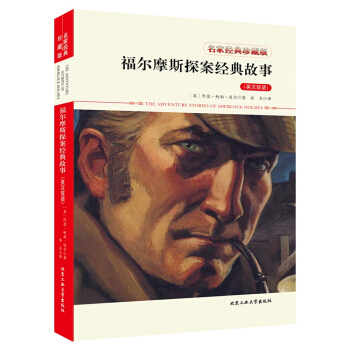
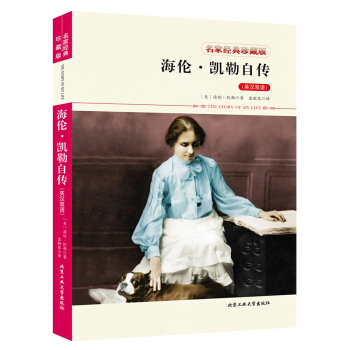

![飛鳥集+新月集(英漢對照注釋版 套裝全2冊) [Stray Birds+The Crescent Moon] pdf epub mobi 電子書 下載](https://pic.tinynews.org/12129055/5ad5a6c3N69d78fcb.jpg)
